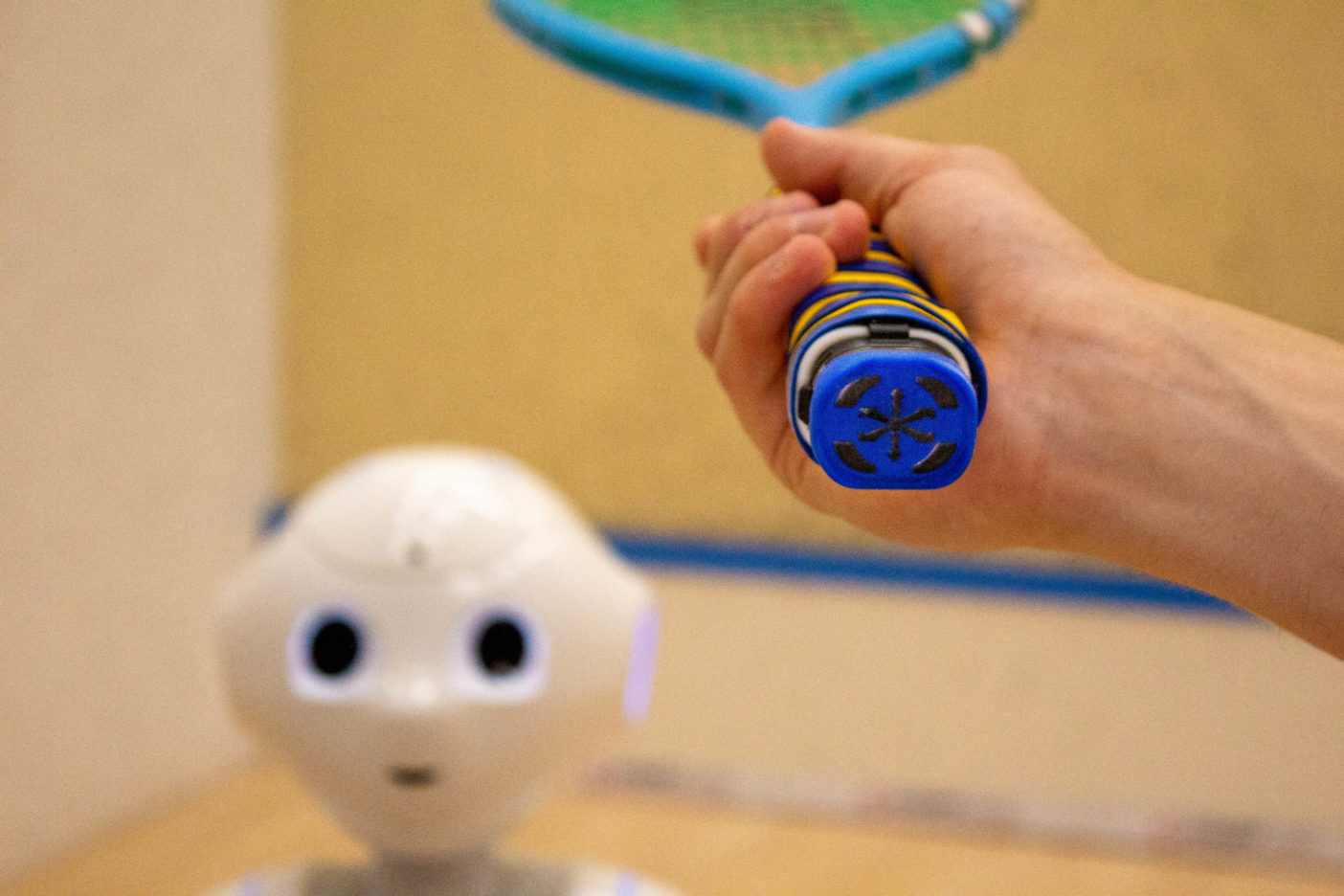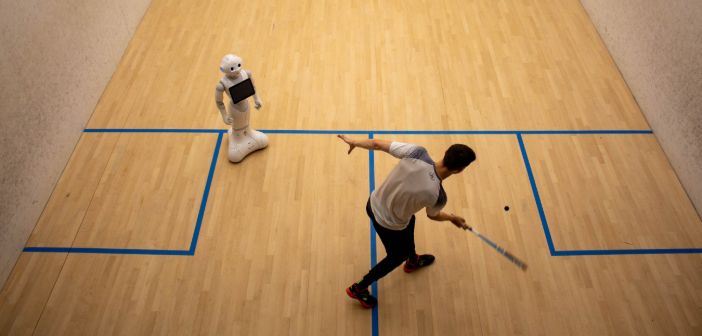A social robot from the National Robotarium, hosted by Heriot-Watt University, Edinburgh, has become the world’s first squash coach to explore if performance improvements and motivation levels can be increased during a player’s solo practice.
The project will involve research on court between a real player practising a variety of shots and technical aspects of their swing with a robot receiving data and interpreting what coaching feedback to provide.
A motion tracking sensor, developed by industry partner RacketWare, attached to the squash racket will enable the robot to monitor swings and speeds of hitting the ball.
Twelve coaching strategies have been developed from observing one-to-one training sessions between real coaches and players.
Based on the sensor’s data, the coaching strategy programming will enable the robot to give instructions about what the player should practice next, using hints and tips and positive reinforcement. This will imitate live coaching experience.

Martin Ross, from Heriot-Watt University, said: “We want to discover if robotics can complement and support the activities of a human coach, bridging the gap between in person coaching sessions when an individual sportsperson is conducting solo practice.
“Robots have been used in other sports, but we believe this is a world first for squash coaching. We are looking forward to sharing results on whether a robot can improve different aspects of a player’s game and increase their motivation for solo practice. This is particularly relevant during recent lockdown periods as indoor coaching was suspended.
“Additionally, we are observing the human response to a robot coach, assessing whether machine-led coaching strategies and words of encouragement are accurately timed and positively received.”
The National Robotarium research facility is part of the Data-Driven Innovation initiative and is supported by £21m from the UK government and £1.4m from the Scottish government through the £1.3bn Edinburgh and South East Scotland City Region Deal – a 15 year investment programme jointly funded by both governments and regional partners.
UK government minister for Scotland, Iain Stewart, added: “This is a superb example of how robots can help us improve our learning in different areas of our daily lives. Innovations like this mean more and more people are able to access support for their health and wellbeing.”









